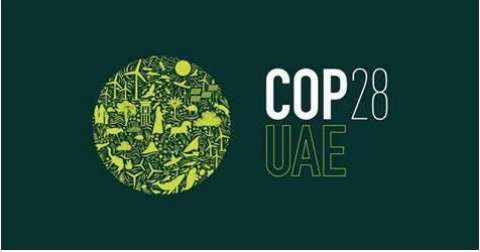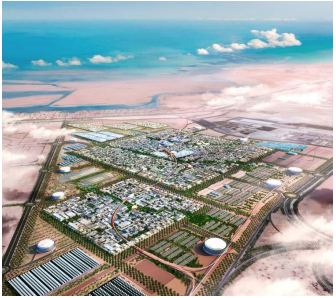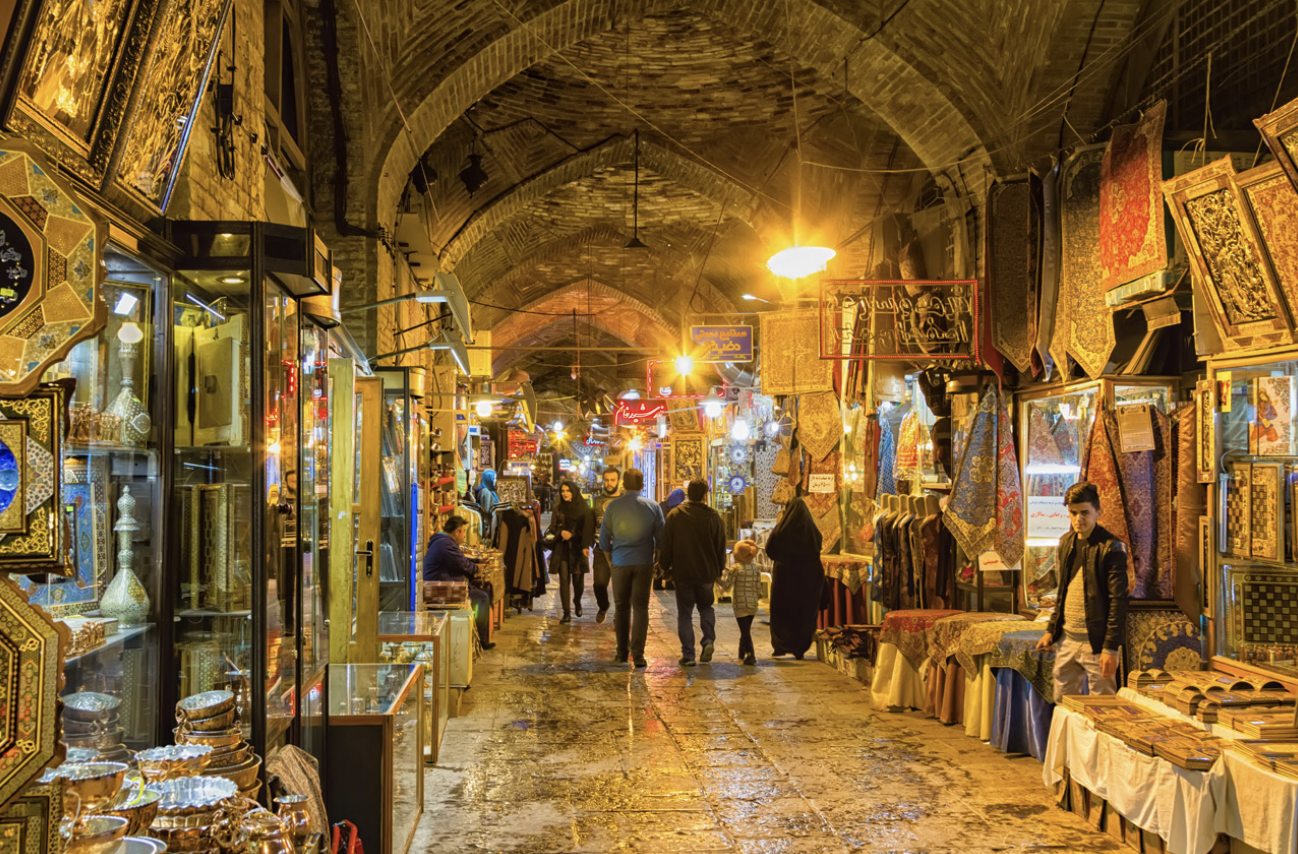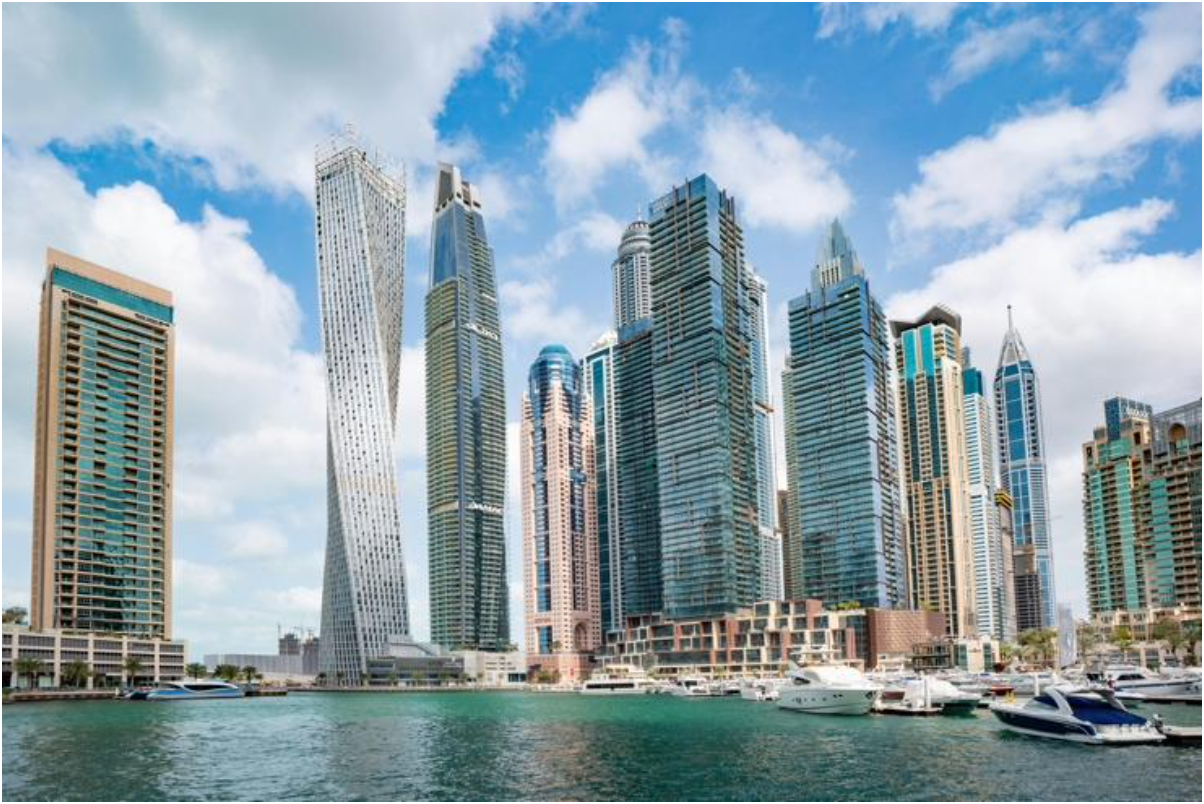
COP 28 in Dubai: the United Arab Emirates, environmental leader in the Middle East
Although their development is based on fossil fuels, they make no secret of their determination energy transition. The United Arab Emirates are thinking post-oil and and aim to be a champion of renewable energies, in a region of the world particularly exposed to global warming.
The emergence of a regional leader facing the climate emergency
The 28th Conference of the Parties to the United Nations Framework Convention on Climate Change (UNFCCC), or COP28, opened on November 30 in Dubai, in the presence of nearly 60,000 international delegates. By identifying what remains to be done since the Paris Agreement in 2015, it also aims to implement accelerated measures in response to the climate emergency. The diplomatic skills of the Emirates, hosts of this major annual gathering, are no longer in question, as they are considered a leading mediator on Middle East issues. When it comes to the environment, the Emirates aim to be a leader, combining
ecological transition with technological innovation.
Although their development is focused on fossil fuels, they make no secret of their determination to promote energy transition. The United Arab Emirates are thinking about the post-oil era and aim to be a champion of renewable energies, in a region of the world particularly exposed to global warming (droughts, desertification and water scarcity.) By presiding over the COP28, they are acting as a spokesperson for countries facing similar challenges and showing their leadership, particularly in photovoltaics.
Masdar City and Al-Dhafra, showcases of the Emirates' environmental commitment
Conceived in 2006 by the national renewable energy company that gave it its name, the Masdar City eco-city was built in the desert with a triple objective: 0 non-renewable waste, 0 carbon, 100% solar energy. From an architectural point of view, everything has been designed to facilitate wind circulation and provide protection from the sun. Leading international groups such as Total Energies and Engie have been attracted by the idea and the tax benefits provided. For its part, the Al-Dhafra solar park, 35km from Abu Dhabi, is currently the world's largest photovoltaic power facility, with 4 million solar panels covering an area of more than 21 square kilometers. Inaugurated in mid-November, it is designed to supply the electricity needs of almost 200,000 people, while avoiding the emission of almost 2.4 million tons of CO2 per year. It will soon be dethroned by the Mohammed ben Rachid al-Maktoum solar park in Dubai itself.

Massive investment in energy transition
By 2021, Abu Dhabi has announced its intention to invest at least $63 billion in renewable energies. Last September, at the African Climate Summit in Nairobi, the Emirates pledged to invest $4 billion in the development of renewable energies in Africa. The world's 7th largest oil producer is committed to the future, and intends to make its mark on the international scene by exporting its development expertise. As part of the coalition of 7 other Arab nations (Tunisia, Morocco, Oman, Jordan, Lebanon, Syria and Yemen) at COP28, they have expressed their support for a tripling of renewable energy production to 11,000 gigawatts by 2030. Their commitment doesn't stop there, as the creation of a transition fund, the first dedicated to this purpose, was announced with a payment of 30 billion dollars.
Although the challenges remain numerous and require ambitious measures on the part of each State, adapted to their share of responsibility for global warming, the United Arab Emirates are showing, on their own scale, a concern for the health of the planet and the well-being of mankind. This COP28, by highlighting the country's role, also confirms that the Middle East plays a major role in providing solutions to the greatest challenge of the 21st century, not only in terms of innovative initiatives but also sustainable development.
Sources :
COP28 : de quoi s’agit-il et pourquoi est-ce important ? | ONU Info (un.org)
Les Émirats arabes unis : le bon endroit pour une COP ? (radiofrance.fr)
Al Dhafra, vitrine solaire des Émirats arabes unis avant la COP28 | Connaissances des énergies



